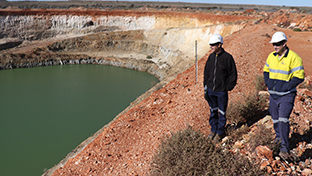THIS IS GOLDEN MINE PROJECTS  Stakeholder engagement
Stakeholder engagement
Stakeholder engagement
Stakeholders play an essential role in the operations of Golden Mine Projects, representing a diverse array of interests that both influence and are affected by our business activities. Aligned with our core values of Integrity, Respect, and Responsibility, we foster relationships with our stakeholders founded on transparent, open, and productive communication.
Proactive and honest engagement with stakeholders is central to our commitment to sustaining our business and delivering lasting value to our stakeholders. This engagement focuses on cultivating trust and enabling participatory and informed decision-making. We strive to balance the interests, needs, and expectations of stakeholders with the best interests of Golden Mine Projects.
At the operational level, all of our projects and mines identify and prioritize stakeholders who have the potential to impact their operational, sustainability, or financial performance.
At a strategic level, our corporate and regional management teams execute an ongoing program of direct and indirect engagement.
Relevant outcomes from both operational and strategic stakeholder engagement are documented in our Group External Interaction & Commitment Register and conveyed through our Enterprise Risk Management process, thereby forming an integral component of the Group’s risk management efforts.
Our engagements are documented in our Integrated Annual Report and Stakeholder Report, which are accessible to the public.





